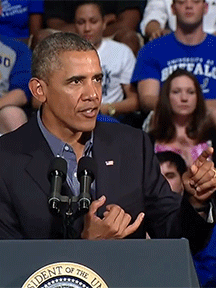Derek Reinbold
Higher education has, in recent years, become a luxury many Americans cannot afford. The sticker price for a year’s tuition at some private universities exceeds $40,000. Public university students also have seen costs rise as their schools rely more heavily on tuition dollars to offset cuts to education in state budgets. Students at UC-Davis, for instance, gained national attention in late 2011 for their protests against the climbing amount of money they were asked to pay. Those students paid $13,181 in annual tuition and fees in 2011, nearly twice the rate paid five years earlier. That year, for the first time, the UC system collected more money from students than from the state of California. State funding for the 220,000-student system declined nearly $1 billion as a result of the economic recession despite rising enrollment.
These rising prices come at a time when a college education has never been more important. College graduates age 25 and over command a median yearly income around $22,000 greater than those with only a high school degree. But higher education is not only important as a means of access to economic opportunity. Studies reveal that college graduates are more happy and fulfilled in their careers than those with less schooling.
President Obama, traveling through the Northeast on a two-day bus tour, laid out his plan to address this issue. The president’s proposal entails two key steps. First, the executive branch will create an innovative rating system designed to allow prospective students and their parents to compare colleges according to “value.” This system would aggregate tuition costs, graduation rates, the earning power of graduates and other similar metrics to provide a numerical representation of a school’s performance. Second, Obama will pressure Congress to pass legislation tying federal aid to performance on this rating system. This carrot-and-stick approach is designed to reward high-performing schools and pressure less successful institutions to improve.
The president’s proposal met with acclaim from some directly involved in higher education. Paul LeBlanc, the president of Southern New Hampshire University, remarked: “what the president is basically saying is we have one problem – i.e., the unsustainable nature of the current system – and that problem is trumping all other problems.” Obama urged colleges to experiment with technology and other methods as ways of providing better outcomes for their students; he further praised Georgia Tech for its low-cost master’s degree program offered in conjunction with Udacity, an education technology startup.
Others have been more critical of the president’s proposal, concerned by the idea that economic success after graduation is a good metric of educational achievement. James Grossman, executive director of the American Historical Association, stated: “I’m not seeing the value of a college education in terms of participation in public culture, or a graduate’s acquisition of the skills and curiosity essential to ‘learning how to learn.’” Defining the value of college as financial security after graduation brings up some troubling questions: Does this system unfairly advantage schools with wealthier students? Is an across-the-board standard appropriate or fair in the context of a diverse educational system? How will the system account for schools that have a strong public-service bent, where graduates receive less compensation than their equally qualified private sector peers?
Fortunately, critics and supporters alike will have time to influence the direction of this proposal. U.S. Secretary of Education Arne Duncan said the administration planned to move slowly as it created this system, in part to listen to the concerns of university administrators. The rating system is expected to be in place by 2015, and the Obama administration hopes that Congress will allow the system to be tied to schools’ federal tuition assistance by 2018.
Derek Reinbold is a senior at Case Western Reserve University, triple majoring in political science, international studies, and art history. Case Western is home to the Alpha of Ohio Chapter of Phi Beta Kappa.




